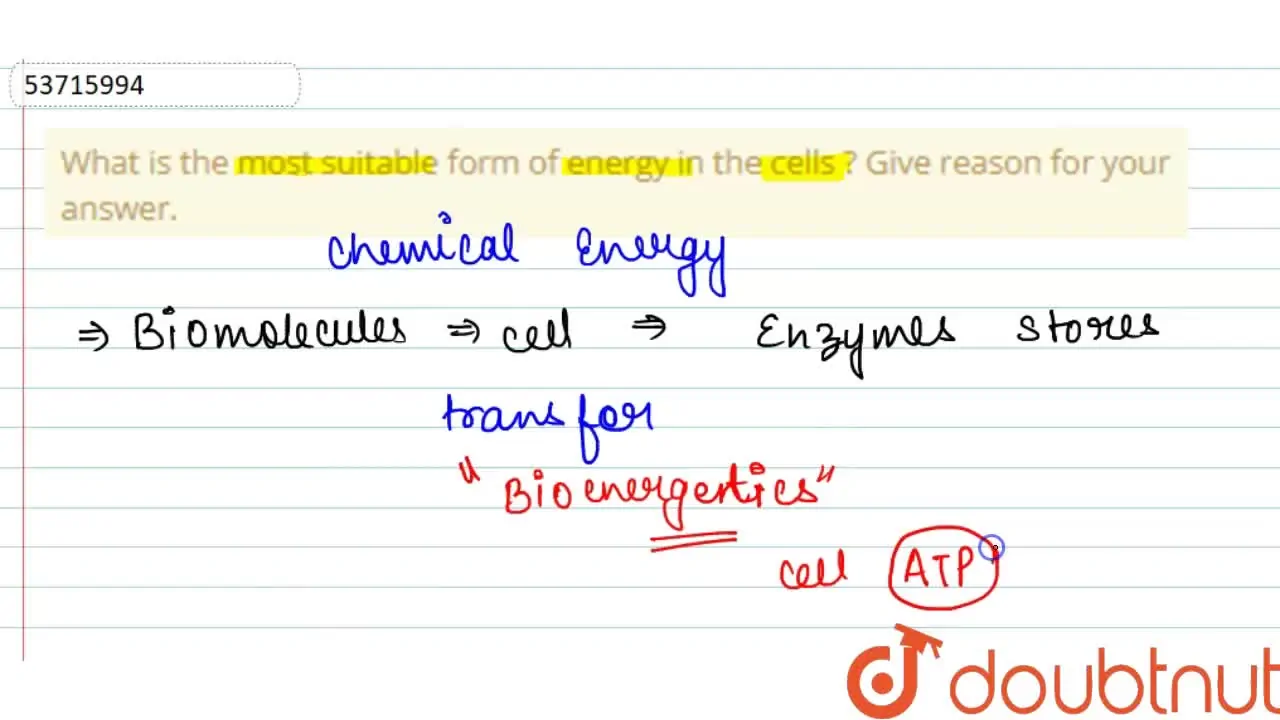What is the most suitable form of energy in the cells ? Give reason for your answer.
Chemical energy, it can be easily stored, transferred and transformed.
Related Playlists
- BOOK - PRADEEPCHAPTER - CELL : THE UNIT OF LIFE EXERCISE - ADDITIONAL QUESTIONS (LONG ANSWER QUESTIONS )66videos
CELL : THE UNIT OF LIFE
- BOOK - PRADEEPCHAPTER - CELL : THE UNIT OF LIFE EXERCISE - ANALYTICAL QUESTIONS WITH ANSWERS20videos
CELL : THE UNIT OF LIFE
- BOOK - PRADEEPCHAPTER - CELL : THE UNIT OF LIFE EXERCISE - ADDITIONAL QUESTIONS (VERY SHORT ANSWER QUESTIONS)107videos
CELL : THE UNIT OF LIFE
- BOOK - PRADEEPCHAPTER - BREATHING AND EXCHANGE OF GASES EXERCISE - NOTABLE QUESTIONS1videos
BREATHING AND EXCHANGE OF GASES
- BOOK - PRADEEPCHAPTER - CELL CYCLE AND CELL DIVISION EXERCISE - Assertion-Reason type questions18videos
CELL CYCLE AND CELL DIVISION
Similar Questions
Nucleus is known as brain of the cell. Give reason for your answer.
View SolutionIs this a mystery story ? Give a reason for your answer.
View SolutionWhat lessons has nature taught us? Give reasons for your answer.
View SolutionWhat type of wave is a sound wave? Give reason for your answer.
View SolutionCan the process fo rusting be called combustion ? Give reason for your answer.
View SolutionIs the uniform circular motion accelerated ? Give reasons for your answer.
View SolutionCan we make a pot with sandy soil ? Give reason for your answer.
View SolutionWhat do you think Dinamani is the name of? Give a reason for your answer.
View SolutionWhat do you think Dinamani is the name of? Give a reason for your answer.
View SolutionCan a triangle have two obtuse angles ? Give reason for your answer.
View Solution


